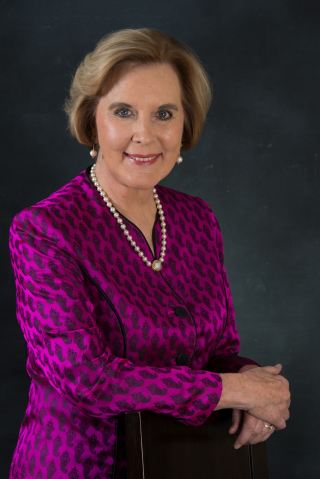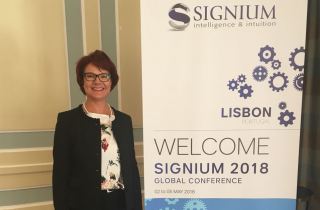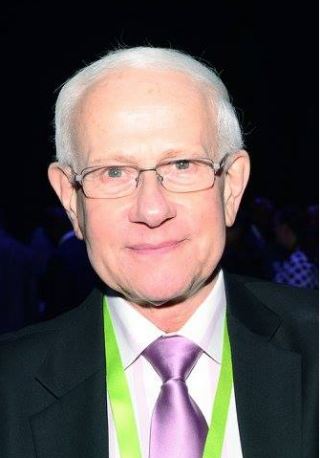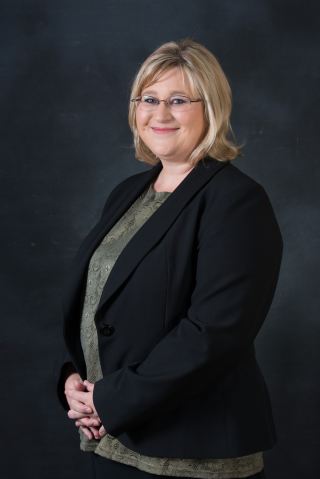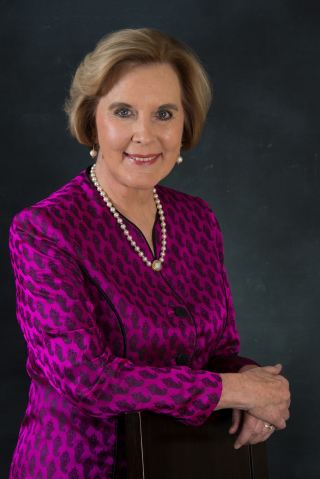Don’t be distracted from your pursuit of executive success
By Auguste (Gusti) Coetzer* (www.signium.co.za)
A growing mismatch is becoming apparent between the behaviour of international corporate achievers and their South African counterparts. Offshore, upwardly mobile executives increasingly embrace ‘Deep Work’ and reduce distractions as they strive for quality outcomes and the type of successful track record that ensures progress up the corporate ladder.
In contrast, local executives often spend hours in inconclusive meetings, happily endure distraction via smart devices and seem to accept the curse of constant connectivity and 24/7 availability.
We see distraction aversion overseas versus distraction acceptance locally. What prompts the mismatch? The catalyst was probably Professor Cal Newport’s ‘Deep Work: Rules for Focused Success in a Distracted World’. In the book and several academic papers, he defined deep work as professional activities in a state of distraction-free concentration that push cognitive abilities to their limit.
These efforts create new value, improve your skill and are hard to replicate. Writer and entrepreneur Jason Fried also published several books on the need to exclude distractions as a prerequisite for higher personal productivity and the enhanced ability to deliver at an elite level.
The literature continues to grow as consultants and writers contribute how-to articles on the ways in which achievers can limit distraction, boost productivity and inject meaning and pride into their work through elegant outcomes and quality improvements. Ideas include ‘Do Not Disturb’ signs outside the offices of those committing time to deep work, switching off cell phones, leaving work promptly, limiting the pester power of colleagues who fail to respect personal time and cutting down on meetings and the time spent on emails.
Study of corporate realities in a distracted world highlight worrying trends. For instance, in some cases the email in-tray set daily priorities rather than business imperatives.
Deep work’s attractions were then underlined by studies into the real cost of multi-tasking and revelations that productivity does not rise, but falls as a result of ‘shallow work’. One study suggested task-switching could cut productivity by 40%. Scientists also revealed that dopamine, a substance found in our brains, is depleted by incessant hyper-stimulation. This chemical drives motivation, increases focus and drives us to action.
As deep work caught on, it was found that deep thinking without interruption enabled better concentration and fostered new insights as fresh neural pathways opened up in the brain. Initially, bosses may have been miffed by subordinates who failed to respond instantly to messages. But the rationale (‘I never take calls when I’m hard at work’) was soon taken on board, especially when deep work began to deliver qualitative benefits.
It’s simple enough to test the anti-distraction case. Leave work on time. Switch off your cellphone and smart devices. Enjoy a proper night’s sleep, without having to answer late-night calls. When arriving at work ignore emails. Early in the day after a zero-distraction evening you are rested, relaxed and creative. Use this time for deep work. Emails come later. Contrast the frustration you often feel with your satisfaction after successful immersion in a single task and its completion.
Frustration is often traceable to the time spent taking trivial calls when you should be doing something productive or wasting time in unnecessary meetings. Deep work rescues you from these traps and frees you to achieve … for the sake of the business and your own career.
*Auguste (Gusti) Coetzer is a Director of Signium Africa (previously Talent Africa), a leading South African-based executive search and talent management company servicing sub-Saharan Africa.
Website: www.signium.co.za
Tel: +27 11 771 4800
Issued By: Tale Spin Media & Marketing
Zelda Williams 082 461 0689
What to do when integrity may get you fired?
What to do when … Integrity may get you fired
By Auguste Coetzer*, Director at Signium Africa (www.signium.co.za)
Rising levels of perceived corruption have sharpened the ethical challenge for those in responsible positions. When the spoils might run into billions, it seems you can be fired for doing the right thing and rewarded for doing what you know to be wrong. How do you stay on the side of the angels, stay in your job … and stay out of jail? The issue receives growing attention. The PwC study, Strategy & Recent CEO Success notes an international rise in ethical lapses and subsequent dismissals at senior level. It attributes the uptick to public outrage at corporate scandals, social media as a platform for experience-sharing and a 24/7 news cycle that makes any cover-up highly problematic.
The topic is also examined by author Ira Chaleef in his book, Intelligent Disobedience: Doing Right When What You’re Told to Do Is Wrong. Intelligent Disobedience indicates the impossibility of being only slightly dirty. You might object to an unethical practice and go along reluctantly, but your ethical lapse can still land you in jail. So, do you simply resign in protest and walk away? Sometimes, this is the only thing to do. You might then go public and become a whistle-blower – with huge personal consequences if you are labelled a ‘trouble-maker’. This is not always a wise move, and is often not necessary.
In a small market like South Africa, industry peers, professionals and specialists in executive recruitment are usually aware of the organisations where leadership is flawed and irregularities are apt to occur. Quitting an operation like this – or being fired for taking an ethical stand – holds no stigma. Your career will often resume an upward trajectory after an initial bump or two. In many cases, however, the issues are not nearly so clear cut. The organisation might decide on suspension rather than dismissal. You can then be pressured to go quietly. In South Africa, there have been cases where senior personnel have been suspended for years, leaving them and their careers in limbo. With this in mind, it may be advisable to avoid an outright rift in the event of unethical demands. Intelligent Disobedience suggests four techniques: Obvious shock. By your tone and facial expression indicate the request has taken you aback. Don’t give an outright refusal (yet). Your demeanour may be enough to prompt a rethink.
The boss or board may backtrack and subsequently abandon the idea without losing face. Seek clarification. Ask ‘Did I understand you correctly? Do you really want me to do this?’ You might even ask for the instruction to be put in writing. (For your own part, never sign any documents sanctioning unethical practices. This puts you in the cross-hairs while guilty parties stay camoflaged.) Suggest a better alternative. There may be a chance other, less dubious, steps could be taken and deliver a positive outcome. Emphasise self-preservation. Use expressions that enable a superior to retreat. Say, ‘This could make us look bad if this comes’ rather than ‘You will look bad.’ Point out that in the social media era, dirty secrets always come out eventually and this will not look good for ‘us’. But, at the end of the day, remember there are worse things than quitting a job or being fired from it … for instance, going to prison.
*Auguste Coetzer is a Director of Signium Africa (previously Talent Africa), a leading South African-based executive search and talent management company servicing sub-Saharan Africa.
Signium Africa – New key appointment in global consumer goods and services practice group
Signium Africa proudly announces the appointment of Annelize van Rensburg as Leader of the Global Consumer Goods and Services Practice. She celebrates twenty years of executive search as one of the founding members of Talent Africa that became Signium Africa in 2017.
Annelize is fulfilling a critical role as successful practice groups are a key part of Signium’s strategy and Consumer Goods and Services accounts for more than 25% of Signium’s searches globally. Annelize takes over from Frances Kelly who made a valuable contribution to the structure and quality of thought-leadership content on the global website.
Alastair Paton, Chair of Signium Global said “We are fortunate that Annelize has agreed to lead our global consumer practice. Signium is increasingly working at regional or global level for our clients as executive search and broader leadership advisors. Annelize has an outstanding reputation in South Africa and a leadership style that is both purposeful and sensitive to different cultures”.
Annelize’s industry experience spans a variety of sectors with a number of clients in the consumer, agriculture, hospitality, FMCG and health sciences field. She has experience in servicing multi-national companies with a specific focus on South Africa and the sub-Saharan region. She is based in South Africa.
Annelize van Rensburg is a director of Signium Africa (previously Talent Africa), a leading South Africa-based executive search and talent management company servicing sub-Saharan Africa. www.signium.co.za
The best defence against corporate failure...Individual Integrity
The best defence against corporate failure … Individual integrity By Auguste Coetzer* and J. Michael Judin**
Integrity has no expiry date. You’ve either got it or you haven’t. An honest, diligent company director does not become a crook on the make the moment some arbitrary term limit has been exceeded.
This states the obvious. However, current pressures in the realm of corporate governance and audit practice suggest now’s a good time to remind ourselves of basic principles in the conduct of business and the behaviour of directors. Inevitably, the implosion of the Steinhoff retail group and revelations about the role of Gupta-linked companies in state capture have raised questions about the ability of current regulation – specifically the King IV guidelines – to combat wrongdoing and sharp practice. The focus has fallen on the tenure of directors and audit firms. Long-term appointments supposedly contribute to cosy relationships and an ‘old boys’ club mentality’, allegedly compromising professional scepticism and rigorous scrutiny of corporate actions and accounts.
The supposed solution is frequent rotation of independent non-executive directors and audit firms. Pressure appears to be growing to get old faces out and new faces in. Momentum is such that it is almost certain mandatory audit firm rotation (MAFR) will be legislated locally while the definition of independence may be revisited, perhaps resulting in the automatic lapsing of independent status after nine years (on the British model). Currently, under section 92 of the Companies Act, audit partner rotation is mandatory in South Africa, not audit firm rotation, while King IV allows boards to exercise their judgment when an independent non-executive director appears to offend any of the criteria for independence, as long as a board can justify its view that independence of judgment and action is unimpaired. This may change as those calling for further legislation punt the merits of regular rotation. In effect, the proponents of rotation play up the benefits of a shake-up while playing down the value of experience. The danger is that institutional memory and industry knowledge will be sacrificed with no assurance new perspectives will improve company performance or corporate governance. Past errors might be repeated, incurring unnecessary costs while endangering competitive advantage and jobs.
Experience has traditionally been regarded as a key component of wisdom and a precondition for forward planning. Confucius tells us ‘By three methods we may learn wisdom: First, by reflection, which is noblest; Second, by imitation, which is easiest; and Third, by experience, which is the bitterest’. Of course, experience at the highest level – in the boardroom – is especially hard won. It should be noted that experience is still being gathered with MAFR. This state of flux has not impeded the global trend to mandatory rotation.
The EU has introduced MAFR, with a 10-year cap on client-auditor tenure. Brazil has a five-year cap, as does China (for banks and SOEs) while the UK prefers a 10-year limit. Yet a growing body of research suggests presumed benefits cannot be substantiated and the risks of auditing failure are higher in the early years of a relationship; undercutting arguments about complacency setting in over time. The efficacy of rotation as a defence against fraud is also open to question. MAFR was in place in Italy years before the Parmalat scandal, but was no defence against frauds so massive they rocked the country. Sometimes doubt sets in after prolonged trial. For example, Spain embraced the concept for several years, then dropped it. Research continues and real-life experience is still being gathered. However, arguments in favour of a wait-and-see approach appear to have lost ground to growing agitation for regular rotation of audit firms and independent directors. The challenge for proponents and sceptics alike is how to make the best of these changes when they come.
Clearly, the known risks should be addressed; for instance, the danger that rotation will deplete industry knowledge and institutional memory. One suggestion here is that a phasing-in period be introduced. The established audit firm (or established directors) could remain on board while replacements learn the ropes and draw on the experience of their immediate predecessors. With corporate change on the near-term horizon, it is also appropriate to focus on challenges specific to South Africa; such as the need to strengthen boardroom diversity. Here, the phasing-in principle might be extended to include a mentorship period for newly appointed young directors. While welcoming a new generation of directors, it makes sense to confront a generational issue – low levels of digital literacy on ageing boards of directors. A McKinsey Quarterly article of 2016 noted that “only 116 directors on the boards of the Global 300 are digital directors”. Furthermore, two McKinsey surveys report that only 17% of directors say their boards are sponsoring digital initiatives while only 16% say they fully understand how industry dynamics are changing in the face of digital attack. Yet one in three directors believe digital disruptors will overturn their business models in the next five years.
In response, some US firms are setting up technology committees while hiring chief digital officers and appointing digital directors. South African companies face similar challenges, though board composition may not yet reflect their willingness to cross the digital divide. The geek with the knowledge and insight to save a traditional organisation from digital disaster is probably under-30 with a ring in his (or her) nose, and you don’t see many directors answering to that description in South African boardrooms. In all these rotational, mentorship, diversity and digital scenarios, we should acknowledge that a key issue is talent availability. South Africa’s skills pool is limited. The number of experienced, proven and respected individuals with sound directorial credentials is finite. We can legislate change, but we then have to find the people to make the changes work. Clearly, integrity and intellectual honesty are non-negotiable. They are the critical requirements of all contributors to company performance, whether newcomers to the boardroom or old hands A shake-up that weakens corporate governance must be avoided at all costs. Ethical leaders with strong values are the best guarantee that change is a change for the better.
*Auguste Coetzer is a Director of Signium Africa (previously Talent Africa), a leading South African-based executive search and talent management company servicing sub-Saharan Africa. www.signium.co.za
**J. Michael Judin is a partner in the Johannesburg law firm of Judin Combrinck Inc. www.elawnet.co.za Though he writes here in his personal capacity, he is on the King Committee, was part the task team that wrote King IV™ and chaired the subcommittee on the chapter dealing with negotiation, mediation and arbitration as contained in King III. He is a non-executive director of, and legal adviser to, the American Chamber of Commerce in South Africa and co-chairman of the Corporate Governance International Development Subcommittee of the American Bar Association’s business law section.
Cloning kills companies
By Michelle Moss, director at Signium Africa (Previously Talent Africa) www.talent-africa.co.za
The corporate world embraces diversity and inclusion. Countless mission statements say so. Building a diverse organisation is supposedly a strategic imperative. But the question remains: Are businesses making it happen or missing the mark?
One test is talent acquisition. If diversity is so important, you would expect it to be reflected in the selection of senior executives and skilled professionals.In the real world, a mixed picture emerges.Awareness of the advantages of diversity and inclusion is certainly growing.
The ‘2017 Deloitte Global Human Capital Trends’ report says 69% of executives say diversity and inclusion are important, up from 59% in the previous survey.Furthermore, the number of executives who cited inclusion as top priority rose 32%.Diversity strategy has the CEO’s attention.CEOs are the primary sponsors of diversity initiatives, according to 38% of executives canvassed in this international survey.Finding the right skills, irrespective of gender or race, is crucial. It ranks third among the major concerns of business leaders, says the Deloitte report. It is ‘very important’ or ‘important’ to 83% of executives.Increasing pressure to comply with organisational hiring policies and quotas also drives growing focus on diversity and inclusion.There is an implicit prohibition of ‘cloning’ (hiring someone just like you) as it perpetuates the status quo and is bad for the business.
Failure to move forward could even kill the business, yet the practice remains prevalent.‘Cloning’ may not involve the same race, gender and religion, but the same skills, management approach, interests, likes and dislikes as the hiring manager and team.The pretext is often that the selection gives the best ‘culture fit’ and therefore seems perfectly acceptable.However, ‘cloning’ is toxic as it fosters group-think. Consensus and like-mindedness strangle collaboration, creativity, innovation and risk-taking.Industries and technologies change. Customer’s needs change. Therefore, a team’s ability to generate new ideas and embrace change is critical.
Here, experience shows it is easier to teach a multi-skilled team how to resolve conflict among themselves than it is to teach a homogenous group how to generate alternative solutions.We can espouse diversity in theory, but nullify it in practice simply by sticking with time-honoured recruitment practice that might be skewed toward recruitment in our own image.
This explains growing doubts about traditional interviewing.It seems our brains are hot-wired to make rapid assumptions (an asset when ancient man had to instantly assess danger). Research shows we take just 15 seconds in a rush to judgment. Essentially, we look for things that make us comfortable.Quickie judgments like this can flaw traditional interviews.Obtaining a diverse skills set may be vital. But how, if old-style interviews might not be up to the job?A mix of tools is increasingly adopted, including psychometric tests (often questionnaire-based), simulation exercises (to replicate challenging scenarios and scrutinise behaviour) and semi-structured or competency-based interviews.Is there any evidence South African business is racing to adopt these more objective assessment tools in its quest for greater representivity?Yes and no.Some employers are moving in this direction.
Others rely greatly (sometimes solely) on traditional interviews. Often, objective assessment techniques identify a high potential candidate who challenges traditional thinking, identifies novel opportunities and embraces risk, but is passed over by a hiring team who favour slow, cautious and conservative thinking.Again, the culture-fit rationale is trotted out.It seems everyone wants diversity, but ‘cloning’ is comfortable, ‘cloning’ is acceptable … but for how long?
Entrepreneurs have their day … even inside corporates
By Gusti Coetzer - director at Signium Africa (previously Talent Africa)
Entrepreneurship is widely celebrated. Since 2010, National Entrepreneur’s Day on November 19 has been presidentially proclaimed in the USA and has now been joined by National Entrepreneurship Month (November), National Entrepreneurship Week and Small Business Saturday.
Celebration is understandable. Global experience indicates entrepreneurs create jobs and often develop products with worldwide appeal that boost export earnings.Entrepreneurial spirit is also high on the list of competencies when job specifications are drawn up by major companies looking for executive talent.
Though entrepreneurs are rightly applauded, there appears to be some confusion about what it takes to be one.Media coverage of entrepreneurship and the qualities required of the next Steve Jobs or Jeff Bezos confirms the confusion as many commentators are just as keen to outline misconceptions around entrepreneurship while others fail to distinguish between subsistence-level small business and game-changing innovation.
Those with real entrepreneurial fire go out to revolutionise their industries. Some even want to change the world.Opening yet another nail bar will hardly revolutionise the industry, though earning your own living without reliance on a boss is certainly a commendable goal.
Pretoria-born multiple entrepreneur and billionaire Elon Musk famously said, “Goingfrom PayPal, I thought, ‘What are some of the other problems that are likely to affect the future of humanity?’ Not from the perspective, ‘what’s the best way to make money?’”
He went on to launch SpaceX, the commercial space travel firm, and Tesla Motors, the electric car-maker.For the type of entrepreneurship that creates boundless new opportunities, it therefore appears a vision beyond financial security is required. In fact, financial insecurity and frugality may be the lot of the visionary entrepreneur in the early days.
There is general consensus that risk-taking ability is a must as so many entrepreneurs champion breakthrough concepts that may not look like a solid investment at inception stage. Generating ideas is therefore a plus, but even more important is the drive to implement them, often at pace.
Creative people have ideas. Entrepreneurs not only have them, they implement them, acting quickly to effect change.
Even a writer and poet like Goethe recognised the importance of get-up-and-go. He noted, “What is not started will never get finished.” In other words, dreaming won’t make it so.It takes a committed entrepreneur to get the job done and turn vision into a paying proposition.In addition, a positive mindset and persistence are obligatory, judging by media commentary.
Billionaire British entrepreneur Richard Branson remarked that business opportunities are like buses – there’s always another one coming. Decades earlier, inventor-entrepreneur Thomas Edison consoled himself during a rough patch that he had not failed, he had simply found 10 thousand ways that did not work.
Conservative investors would have given up long before his bright ideas led to the development of the electric light bulb and record-player.Of course, the start-up visionary does not monopolise entrepreneurship. Increasingly, we see major corporates committing themselves to a culture that embraces judicious risk-taking and champions ongoing innovation.
Only a self-motivated initiator (or several) can instil such a culture.It seems the day of the corporate entrepreneur is at hand … and not only on November 19.

